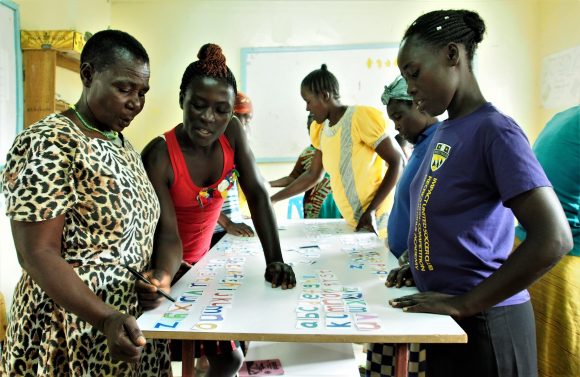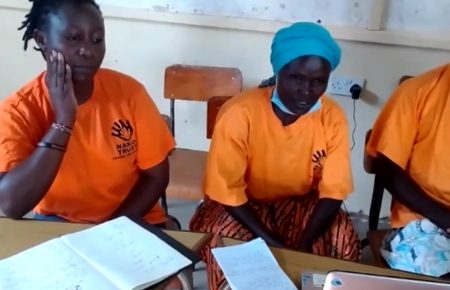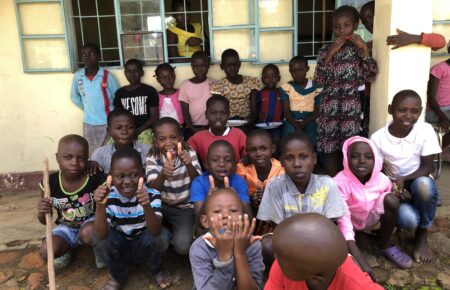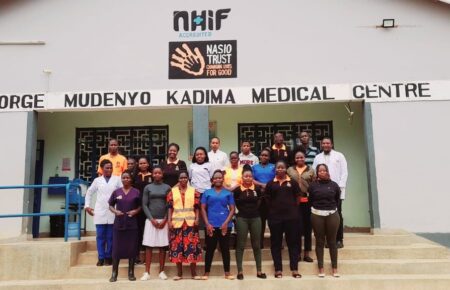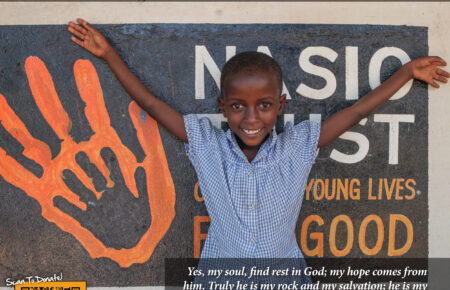PRESS RELEASE: Empowering girls’ education to end poverty in Kenya
January 2021
We welcomed the recent BBC news article by Sean Coughlan, ‘Boris Johnson says girls’ education key to ending poverty’, as we have long championed the importance of educating girls in poverty stricken areas. Nasio wholeheartedly agrees with Helen Grant, special envoy for girls’ education, who said: “High quality female education empowers women, reduces poverty and unleashes economic growth.”
Nancy Hunt, CEO of Nasio, is excited to see the international target of ensuring all girls can have 12 years of good quality education. She agrees with the Prime Minister that it would be the “simplest and most transformative thing we can do” to tackle poverty and to “end the scourge of gender-based violence”. We can confirm first-hand that, if implemented and funded, this will make a real impact.
Cultural norms are harsh and current attitudes do not place a high regard for the education of girls who are often are forced into early marriages and drop out of school due to lack of support or because they are forced to become breadwinners for their families.
The area where Nasio operates is a remote region in western Kenya where 55% of the population live on less than $1 per day. Cultural norms are harsh and current attitudes do not place a high regard for the education of girls who are often are forced into early marriages and drop out of school due to lack of support or because they are forced to become breadwinners for their families.
We believe that poverty is the greatest barrier to education access in the communities living in hardship. Families want the best for their children but lack the financial means to support their education. But when you educate a young girl in Africa, they will be three times less likely to get HIV/AIDS, less likely to drop out of school due to early pregnancy, earn 25% more income and have a smaller, healthier family. A child whose mother can read is 50% more likely to live past the age of five and twice as likely to attend school themselves. An education empowers women, not only to reduce poverty but to contribute to an improvement in economic growth.
By supporting girls to stay in education by tackling the causes of their dropping out, such as through provision of sanitary towels and through our successful Peer Education programme, Nasio are empowering them to take control of their lives.
Amongst the community there are many girls who, despite their disadvantages, are academically gifted. Through the Nasio Exceptional Student Programme these girls are fully supported so they can receive secondary and university education, helping to end the cycle of poverty for themselves, their families, the wider community and equipping them as adults to take an active lead in society and even become future leaders in Kenya.
We also run a women’s adult education programme in literacy and numeracy for those who missed out on basic education as girls. These women gain the skills and confidence to gain employment or run their own small businesses. One example is that of Josephine, a mother of 7 girls who became a widow in 2006, leaving her with the full burden of taking care of the family. Due to family pressure and cultural traditions Josephine was subject to forced “inheritance” by one of her late husband’s brothers who was an alcoholic, violent and irresponsible. Rather than suffer his abuse, Josephine chased the man out of her house and decided to live on her own. Her life was transformed when she was introduced to Nasio’s education program, where she gained skills that have now enabled her to work as a Community Health volunteer and to support herself and her family.
Our recently published novel Not so Black and White also gives the reader some insight into the issues facing girls and women in rural Kenya. Sales of the book support Nasio’s work, with £5 going directly towards educating rural women.
